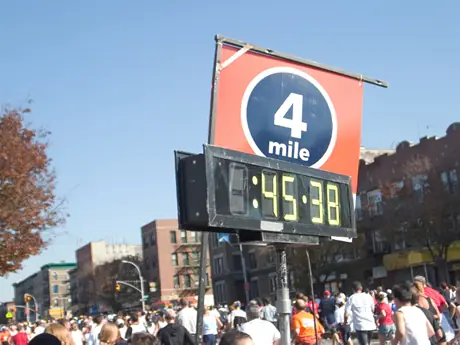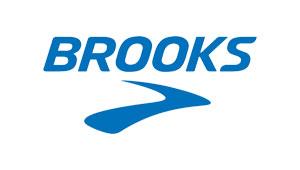
They are easy to spot: Just look for the balloons and banners emblazoned with promised finish times. Seventeen years after Runner's World hosted the first official pace group at the St. George Marathon, in Utah, pace groups are everywhere, helping marathoners and half-marathoners nail specific time goals.
"Now if you go to a race and it doesn't have a pace team, it feels like something's missing," says Star Blackford, a 3:17 marathoner from Columbus, Ohio, who has paced more than 80 marathons as a member of the Clif Bar Pace Team.
But are they for you? That depends.
"I am a believer in pace groups if the runner picks the right group and the pacer knows what he or she is doing," says Darren De Reuck, a running and triathlon coach based in Boulder, Colorado. "If not, it can be a disaster."
More: Party at Your Pace
Here's how to nail your goals by running with the right pack.
Find Your Group
Pace groups are typically organized free of charge by race directors, running stores, and/or national retailers. To find out if your race has them, look on its Web site, e-mail the race director, or look for the pace-team booth at the prerace expo. (If no groups are offered, check whether local running stores are organizing them.)
Sign up online or at the expo. You'll get a pace band to wear on your wrist detailing each mile split—you may also get a time goal to wear on your back so your team can identify and cheer you on throughout the race. Even if you haven't formally joined one, most pace teams will allow you to show up at the start and tag along. (Learn how to Find the Right Running Buddy for You.)
More: 4 Steps to Your Perfect Pace
Meet Your Leader
A good pacer can help followers avoid mistakes like going out too fast, bypassing early water stations, and pushing too hard up hills, says Eladio Valdez, a Kansas City-based coach at The Runner's Edge and founder of SmartPace.
Some organizers require their pace leaders to have a minimum number of marathon finishes and to lead groups running up to 30 minutes slower than the pacer's PR. Other coordinators are less rigorous.
"I have heard of pacers that lead a group too close to their PR and then struggle and don't make the goal time," says Valdez. "There are also showboats that speed through the aid stations and overdo it on the hills."
Go to the expo, meet your pacer, and ask about her experience and strategy or go online and review her profile on the pace team Web site or Facebook page.
"If your pacer says something that doesn't sound right, listen to that voice in your head," says Blackford. "You never want to change something you've done in training based on your pace group."
- 1
- of
- 2
Get ACTIVE on the Go


Couch to 5K®
The best way to get new runners off the couch and across the finish line of their first 5K.
Available for iOS | Android







Discuss This Article